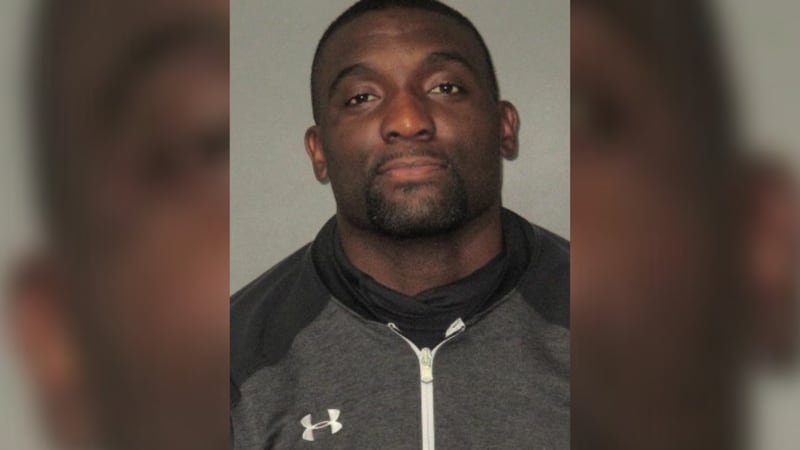Judge leaves it up to Methodist church courts to settle dispute between ministers, La. conference
Hearing was held March 23 on request for a preliminary injunction
SHREVEPORT, La. (KSLA) — A judge says he has no jurisdiction in the debate between nine United Methodist ministers and the Board of Trustees of the Louisiana Annual Conference of the United Methodist Church, South Central Jurisdiction.
The judge reached that decision during a hearing Thursday, March 23 in East Baton Rouge District Court in Baton Rouge.
Before the court was the ministers’ request for a preliminary injunction against the board.
The judge said it was not a matter for the civil courts to decide but rather for the church courts to address.
The ministers’ attorney argued that they have exhausted their ways to find a solution through the church system.
They have 30 days to appeal the judge’s decision.
The ministers are:
- the Revs. Willis Dear, Betsy Eaves, William D. Peeples and Carl Rhoads, all four of Caddo Parish;
- the Revs. Pat Bates and Fred Wideman, both of Claiborne Parish;
- the Rev. John Winn, of East Baton Rouge Parish; and,
- two former Louisiana residents, the Rev. Gene Finnell, now retired in Tennessee, and the Rev. David Melville, now retired in Texas.
At issue in the petition filed March 13 is the process by which churches are being given the option to vote to leave the denomination. The nine ministers believe that process is flawed.
According to the lawsuit, they also believe that members of the Louisiana Conference’s governing body and administration have abdicated their duty to supervise these votes, provide clear information regarding the single reason allowed for disaffiliation and protect the denomination’s assets.
The single reason the national conference allowed for disaffiliation is disagreement with its stance on homosexuality. The national conference opposes same-sex marriage and the appointment of practicing homosexuals to clergy positions.
Following the 2019 General Conference, a limited disaffiliation rule was made for those who opposed the church’s standards. The nine ministers who filed suit assert that many of the disaffiliation votes taken thus far fail to meet the requirements set by the national conference. Their position is that the limited disaffiliating rule cannot be used by Louisiana churches that agree with and approve of the Methodist stance prohibiting the ordination or marriage of self-avowed practicing homosexuals.
The nine ministers also are concerned with how the churches’ properties and other assets are being handled in the disaffiliation process.
As a rule, local United Methodist congregations traditionally have been prohibited from taking control and ownership of church property if a church wishes to disaffiliate. This is related to the United Methodist Church’s trust clause protections and to longstanding traditions within the denomination’s structure, says a statement from the plaintiffs. While local churches have control over their day-to-day activities and facilities, the Louisiana Annual Conference has a trust relationship and responsibility to protect these assets for the benefit of the entire United Methodist Church denomination.
In the case of First United Methodist Church in Shreveport, which has a disaffiliation vote scheduled in April, the value of church property exceeds $50 million. However, under the proposal being considered by the Louisiana Conference, the conference would receive only $765,728.16 for its assets – a loss to the denomination of more than $49 million.
Compounded with the assets of other churches in Louisiana considering disaffiliation, the ministers contend that this loss of property and assets has the potential to cause irreparable harm to the conference’s ministries.
“This is a troubling issue for all United Methodists. Filing suit was a last option for my clients,” David M. Cohn, the Baton Rouge attorney directing the litigation on behalf of the nine ministers, said in a statement. “Prior to initiating this lawsuit, the plaintiffs and others met numerous times with Louisiana Annual Conference officials in an effort to stem the emotional and financial rifts within the denomination.
“We are prepared to document the ongoing failures of conference leadership and flawed processes with unchallenged misinformation that has been allowed to continue, demonstrating a lack of duty by leadership to the denomination and its members.”
OTHER KEY FACTS ABOUT DISAFFILIATION
- A church’s choice to disaffiliate with the United Methodist Church under ¶2553 of the Book of Discipline must be made in time for the process to be complete before Dec. 31, 2023. That’s when the provisions of ¶2553 expire; they cannot be used after that date.
- The decision to disaffiliate from the United Methodist Church must be approved by a two-thirds majority vote of the professing members of the local church present at the church conference.
If a church decides to disaffiliate:
- It shall pay any unpaid apportionments for the 12 months prior to disaffiliation as well as an additional 12 months of apportionments. Apportionments are congregations’ annual financial obligations to the Louisiana Conference.
- It shall have the right to retain its real and personal, tangible and intangible property. All transfers of property shall be made prior to disaffiliation. All costs for transfer of title or other legal work shall be borne by the disaffiliating local church.
- It shall contribute withdrawal liability in an amount equal to its pro rata share of any aggregate unfunded pension obligations to the Louisiana Conference.
- It shall satisfy all other debts, loans and liabilities or assign and transfer them to its new entity prior to disaffiliation.
Below is a copy of the lawsuit and supporting exhibits:
Copyright 2023 KSLA. All rights reserved.









